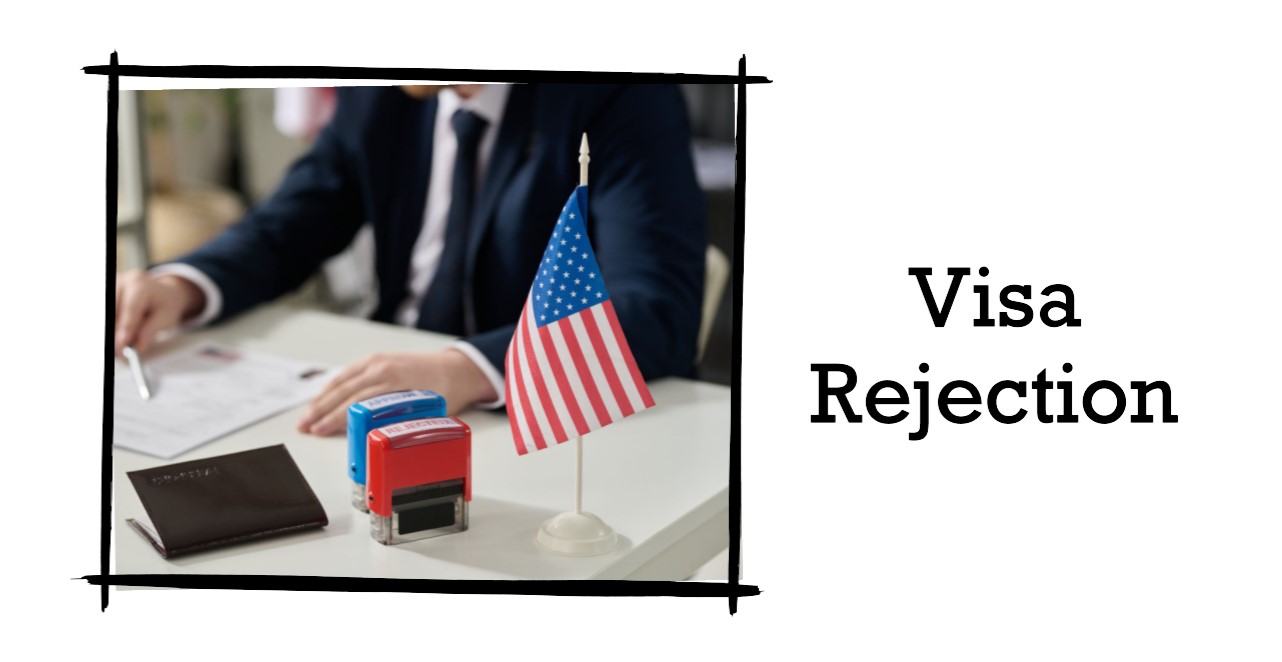The majority of students from all over the world travel abroad to different countries to get higher education. Canada is one such top study destination for students as it offers high-quality education and various education programs. There is a complete process that the students need to follow in order to get their position in any university. They need an acceptance letter and, most importantly, a student visa. However, due to the rise of applications from different countries, the number of rejections has also increased.
We can say now that it is challenging to get your visa approved in Canada due to high competition. A student visa refusal can be maddening for individuals who give their best efforts. If you are willing to go to Canada to pursue your degree, then you are in the right place. In this blog, we will go through common reasons for the rejection of your student visa.
A Complete Guide About The Canada Study Visa Rejection Problems Faced By Students
Poor Academic Performance And Language Improficiency
One of the primary reasons for the rejection of your student visa is poor academic performance. The authorities check the previous educational records and the consistency of the candidate. Having good grades can be beneficial for you in achieving your goal of studying abroad. Apart from previous grades, the acceptance of your visa is highly dependent on your language proficiency. You need to get impressive scores in language tests like TOEFL or IELTS.
These are the minimum academic requirements of any educational institute. In order to get your acceptance letter and visa, you need to fulfill the requirements and stand out from the competition. If there are inconsistencies in your academic journey, then the immigration officer will question that. You need to prepare yourself to give proper answers to successfully become an international student in Canada. Once you get your admission, you can get worry-free as you have the option to hire experts who provide assignment help in Canada.
Financial Limitations
The top reason for visa refusal in Canada is the financial limitations faced by a majority of students. The immigration officers check your financial status and the ability to pay your college fees and other expenses for at least a year. If you have enough resources to handle all the expenses without any problem, then there is a high chance that you will get your study permit.
Individuals who are successful with their visa applications typically have all the required financial documentation present with them that they show to the officers. By giving the documents, they tell the officers that they can easily survive as international students in Canada without even working. You can prove your financial stability in various ways, such as a letter from a sponsor or a personal bank statement. If the candidate fails to give all the evidence, then they might not be able to fulfill their dream of studying abroad.
Insufficient Identification Documents And Travel History
You won’t be considered an ideal candidate if you don’t submit a proper travel record. Many students are not aware of this visa rejection reason. The officers examine all the previous travel records of the students to look for any problems or gaps in their travel history. The authorities also want proper documentation to verify your identity. If they find any previous criminal record or medical problem, then the candidate won’t get the chance to study in Canada.
Moreover, if you have written about travel experiences in the application or personal statement, but you don’t have any proof, then you can get into a problem. Due to this reason, it is advised to hire a personal statement writing service. Experienced professionals know how to structure your SOP and convince the reader. There should be evidence like exit or entry stamps or previous passports. One good way is to give adequate documentation to support the travel history. You should provide the officials with clear and simple-to-understand identification documents to smoothen the process. Ensure that your scanned documents are presented in chronological order so it is easy for the officer to check.
The Letter Of Acceptance
One of the most important documents in your visa application is the letter of acceptance. Make sure that you have your letter from a designated learning institution. It should have all the information on it, such as the length of the program, start date and the tuition fees. If you are applying to a private school, then it is essential to confirm that the college is authorized by the territorial or provincial government. You won’t get your study permit if the educational institute revokes the letter of acceptance.
The Intention To Stay In Canada Even After Studies
It is important to remember that the student visa is not permanent, and it comes with an expiration date. The visa officials confirm the students about returning to their home country after getting their degree. Many students try to stay in Canada due to a lack of jobs in their home country. This can be the main reason for their study visa rejection. The officers don’t want people who aim to live in Canada even after their studies.
To avoid this situation, applicants should show their willingness and eagerness to go back to their own country. They should provide documents regarding the job opportunities present in their home country. One way to convince the officers is by writing an exceptional statement of purpose that tells the scope of your degree in your own country. We suggest you hire a professional that provides SOP writing services. These expert writers know the exact way to craft an impressive personal statement.
Conclusion
Studying in Canada can open the door to opportunities for many individuals. It is a one-of-a-kind learning experience that one should not miss. However, obtaining a study visa for Canada can be a challenging process now due to the increase in applicants. There are several common reasons for the rejection of your student visa that you must be aware of.
Failure to provide accurate and complete documentation, insufficient financial resources, a lack of genuine intent to study, improper language proficiency, and gaps in travel and educational history are among the primary factors leading to visa denials. To enhance their chances of success, prospective students must carefully prepare their application, follow immigration regulations, and prove a genuine commitment to their dream of getting an education in Canada.




